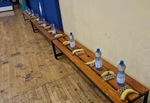Sarajevo students rally in solidarity with Serbian protesters

A group of some one hundred students gathered on Thursday in front of the Faculty of Philosophy at the University of Sarajevo to express support for students in Serbia, who have been protesting for days following a tragic incident at the Novi Sad Railway Station. On November 1, the collapse of a station canopy claimed 15 lives, sparking widespread dissatisfaction and protests across Serbia.
Oglas
The Sarajevo students read out their demands but remained cautious with the media, stating that they would strictly adhere to their publicly announced positions. Among their primary messages were solidarity with their peers in Serbia and the highlighting of numerous issues within Bosnia and Herzegovina that they see as reasons for potential future protests.
Focus shifts to domestic issues
Despite the gathering primarily focusing on supporting Serbian students, the protesters also pointed to pressing issues in Bosnia and Herzegovina. Unemployment, a poor economic situation, and insufficient youth participation in decision-making processes were some of the challenges the students emphasized.
However, the protest was not without criticism. Some accused the students of selective and delayed reactions, considering the series of prior issues in BiH. Critics cited incidents such as the landslide in Donja Jablanica, which claimed 19 lives, and the tragedies caused by flooding, neither of which provoked social unrest or student protests.
Oglas
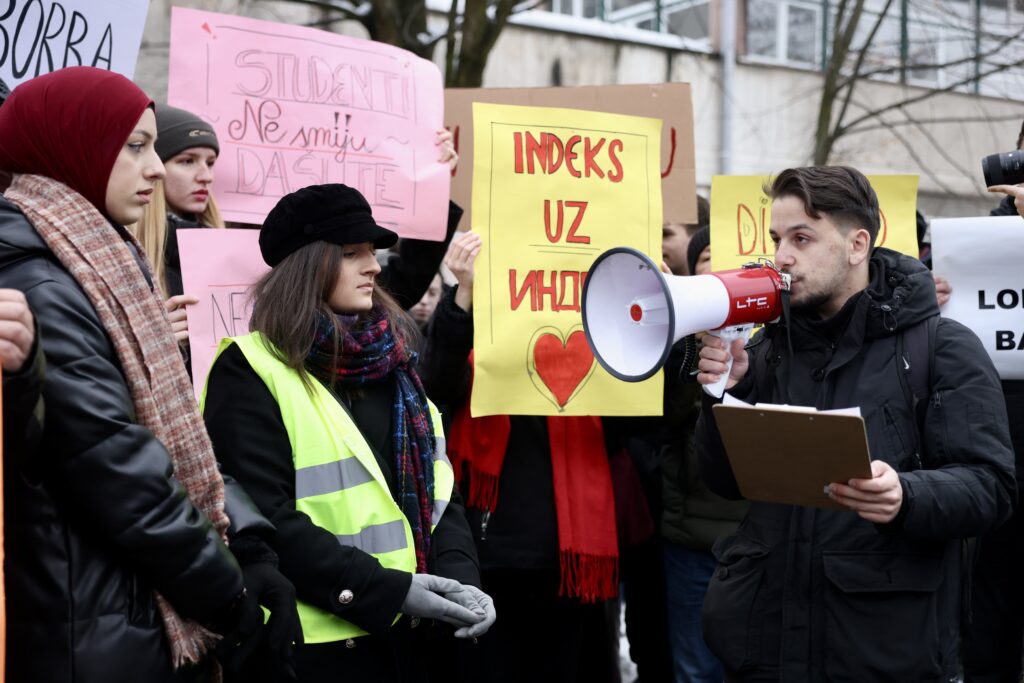



N1/F.Z. | N1/F.Z.
Više
N1/F.Z. | N1/F.Z.
Više
N1/F.Z. | N1/F.Z.
Više
N1/F.Z. | N1/F.Z.
Više
N1/F.Z. | N1/F.Z.
Više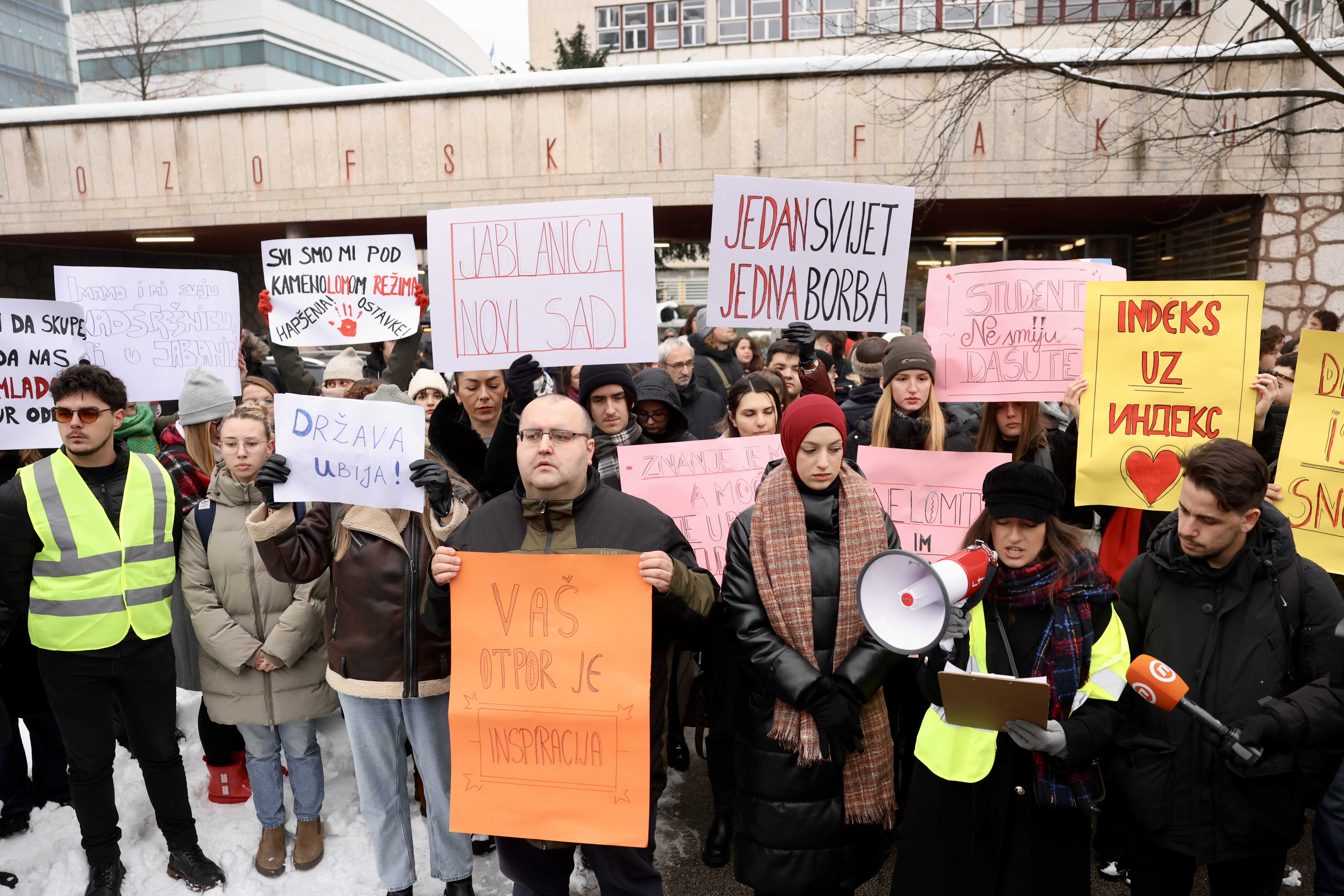
N1/F.Z. | N1/F.Z.
Više
N1/F.Z. | N1/F.Z.
Više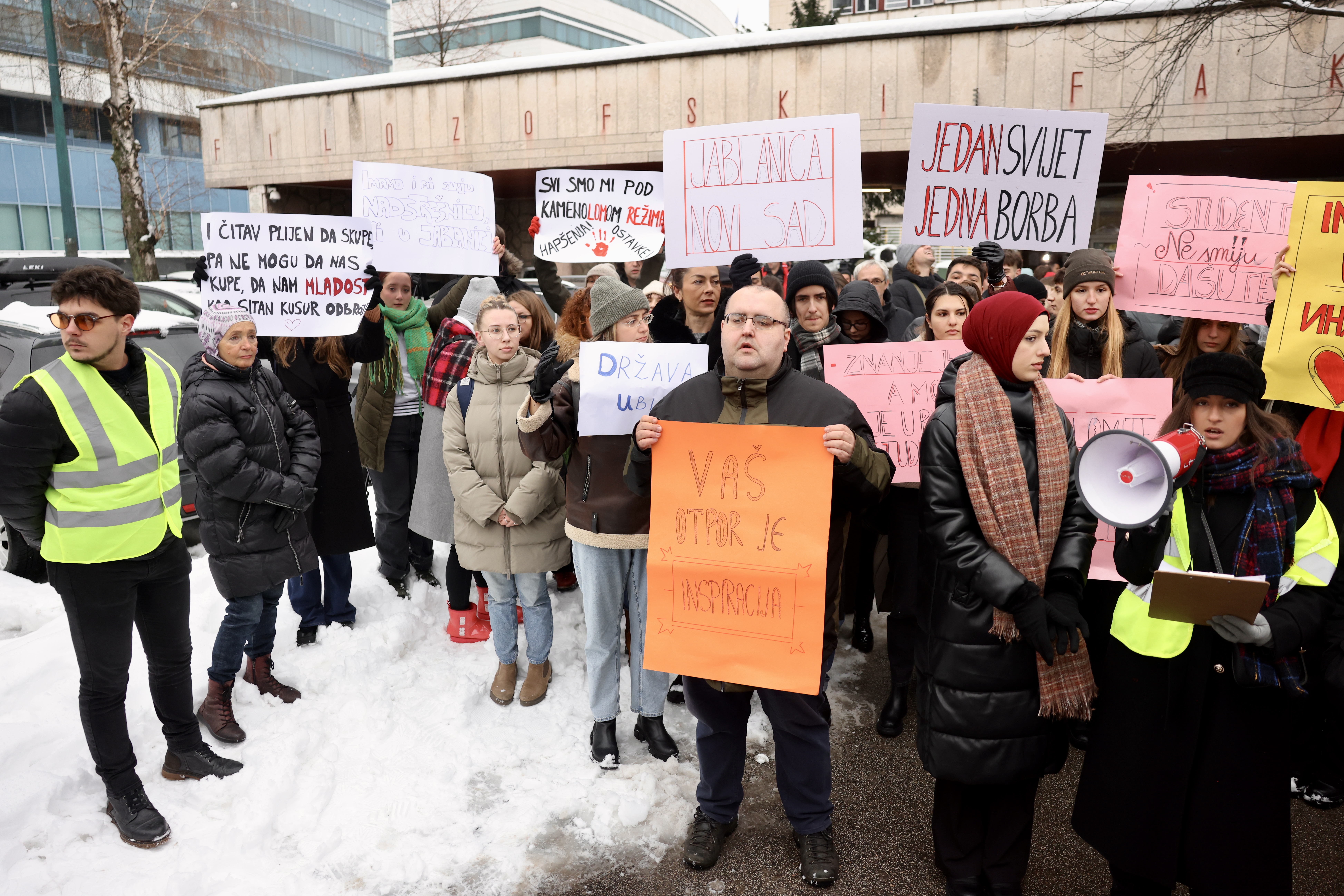
N1/F.Z. | N1/F.Z.
Više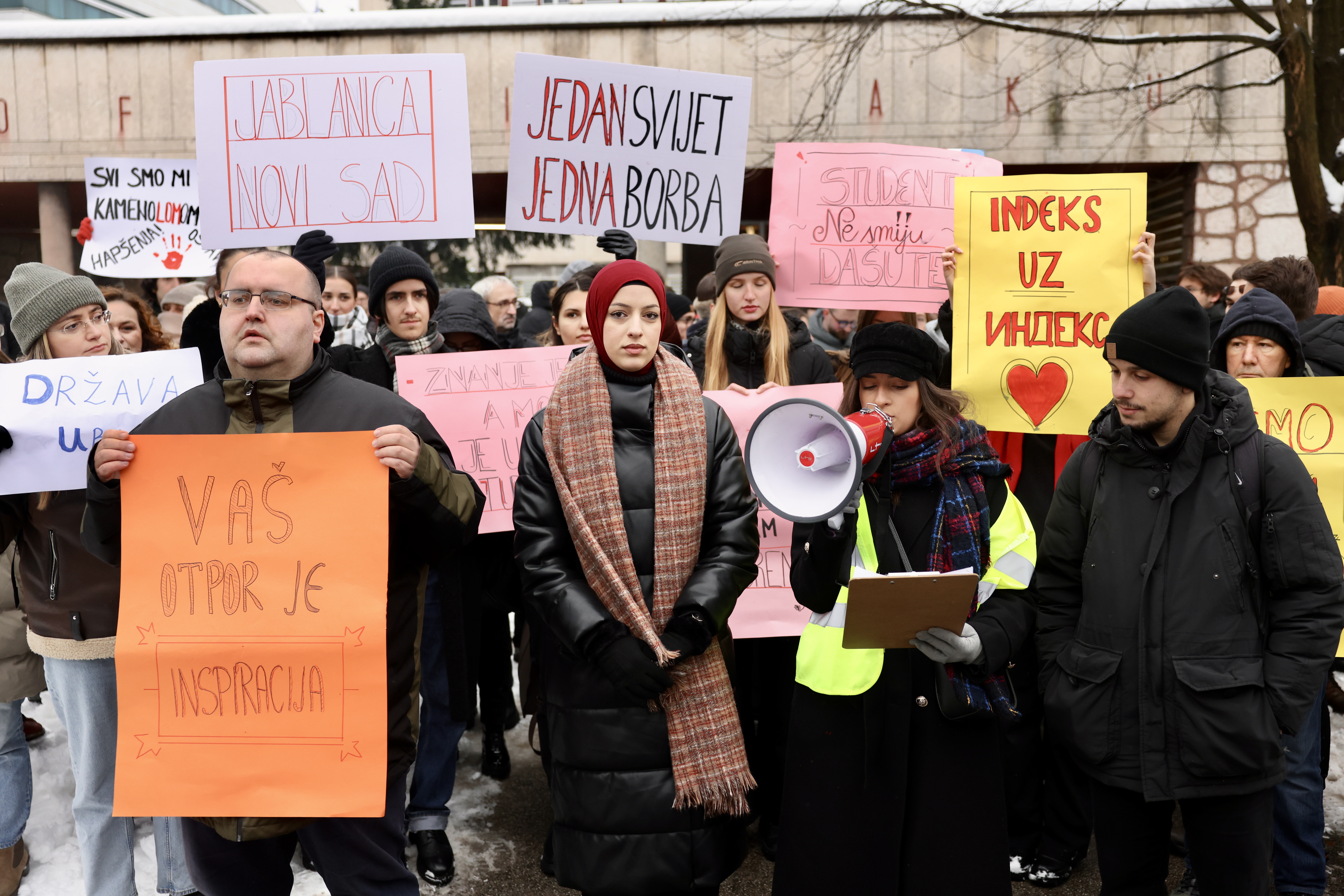
N1/F.Z. | N1/F.Z.
Više
N1/F.Z. | N1/F.Z.
Više
N1/F.Z. | N1/F.Z.
Više
N1/F.Z. | N1/F.Z.
Više
N1/F.Z. | N1/F.Z.
VišeA step toward greater civic engagement
On the other hand, many viewed the protest as a positive step. Observers believe this gathering could inspire students to respond more frequently to social injustices and actively push for change. Professors from the Faculty of Philosophy and activists also showed their support for the protest.
While the Ministry of Interior of Sarajevo Canton approved the gathering, the official stance of the Faculty of Philosophy's dean on the students' activities is still awaited.
This protest, though largely symbolic, highlights an increasing need for greater youth involvement in societal processes to address Bosnia's problems systematically.
Kakvo je tvoje mišljenje o ovome?
Učestvuj u diskusiji ili pročitaj komentare
Oglas
Kakvo je tvoje mišljenje o ovome?
Učestvuj u diskusiji ili pročitaj komentare
Oglas





 Srbija
Srbija
 Hrvatska
Hrvatska
 Slovenija
Slovenija
























